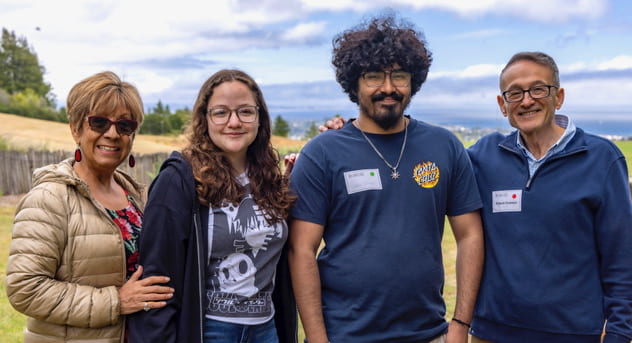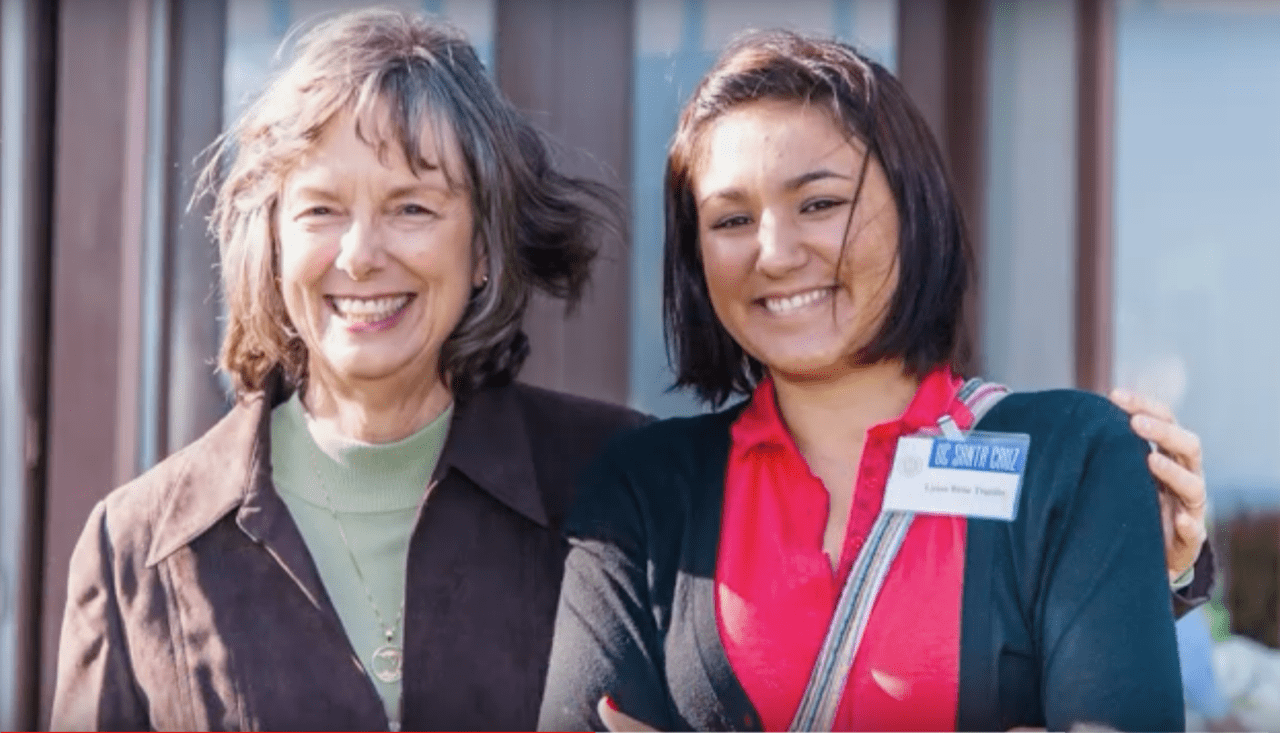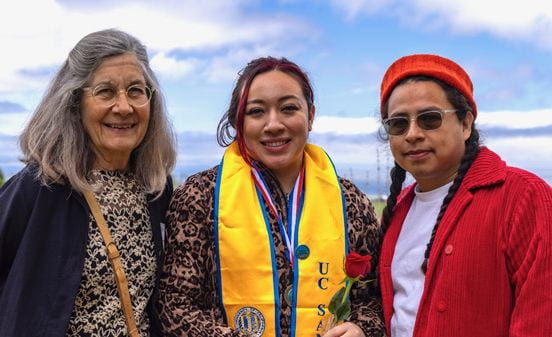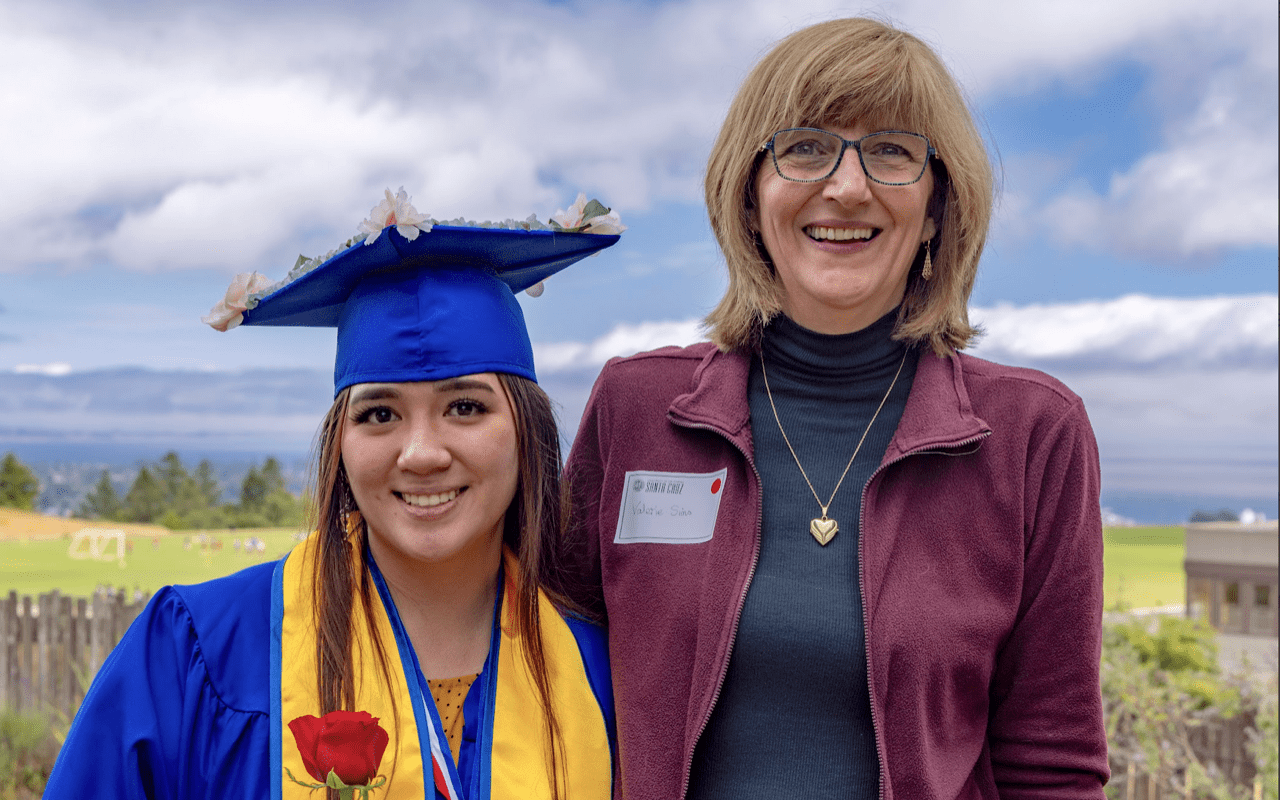Smith Society mentorships match interested students with an adult volunteer who offers support and friendship and becomes an advocate for their personal and educational growth.
Witnesses to our lives are the bedrock upon which we build our identities and our self esteem. We all need and deserve such witnesses.
—Professor Emeritus Gary Miles, mentoring program creator
Making a match
Each mentorship relationship is unique. Our program coordinators take into consideration the interests and preferences of both the mentor and mentee in making a match.
Many of our mentors have some connection to the university. They are often current or former faculty or staff, alumni, or former Smith students. Others are simply caring community members.
The mentorship relationship is formed by the mentor and mentee. It may mean having coffee weekly, sharing challenges and celebrating accomplishments, or simply enjoying each other’s company on an outing to a museum or other place of common interest.
The mentorship is an opportunity to share and benefit from seeing the world through the eyes of another person. In face-to-face meetings, in calls, emails and texts, the relationship often creates a sounding board for ideas, sorting out issues, and broadening perspectives.
Most mentors and mentees report that the experience is deeply rewarding and fun.
Individuals who have mentored several students have found that each of their mentor relationships is different. Some grow into deep and lasting friendships; some remain tenuous. But even a tenuous relationship can have significant value. It may be enough for a student to simply know there is an adult who cares, someone to turn to should the need arise.


Expectations
It’s important that both mentor and mentee bring an openness to the new relationship, and not too many specific expectations.
The chief responsibility of a mentor is to make contact with his or her student and see that contact is sustained. Generally, mentors should expect to initiate contacts via text, email or phone at least three times a quarter and aim for at least one in-person meeting during that time. At the time of the match, mentors are provided with a list of campus and community resources that may be useful in working with their student.
The chief responsibility of the mentee is to respond to their mentor in a timely way, even if only to say, “I’m busy now; could we make contact later?” and to show up for agreed upon meetings.
Mentorships, like all relationships, need attention and goodwill to flourish. A mentoring coordinator is available if needed to help work through any issues that might arise.


How to Connect
If you are interested in serving as a mentor for a Smith Society student, we would love to hear from you. You can send us your contact information—or go ahead and download and complete our Mentor Application form, and send it smithsociety@ucsc.edu. A mentor coordinator will contact you before matching you with a student.